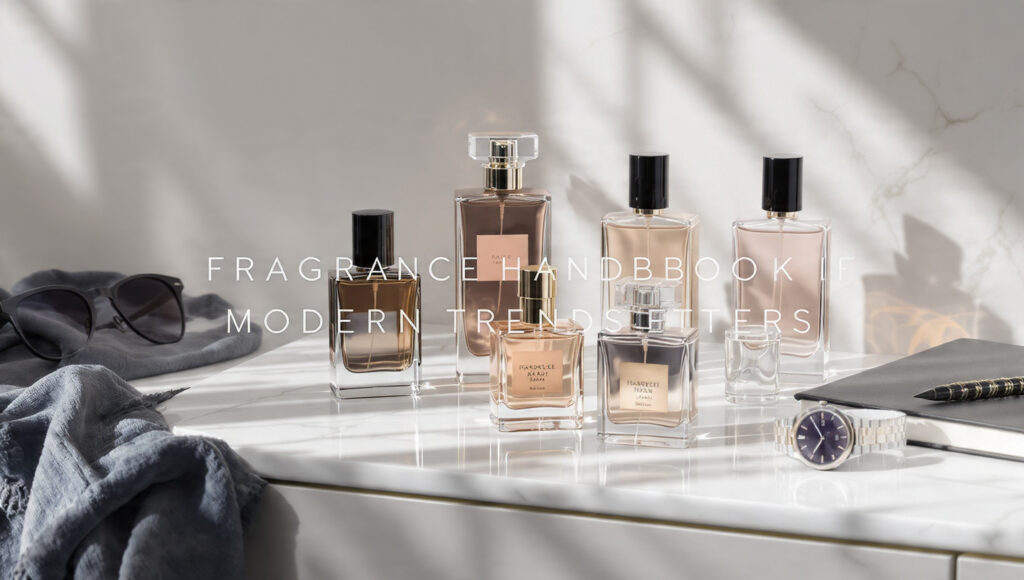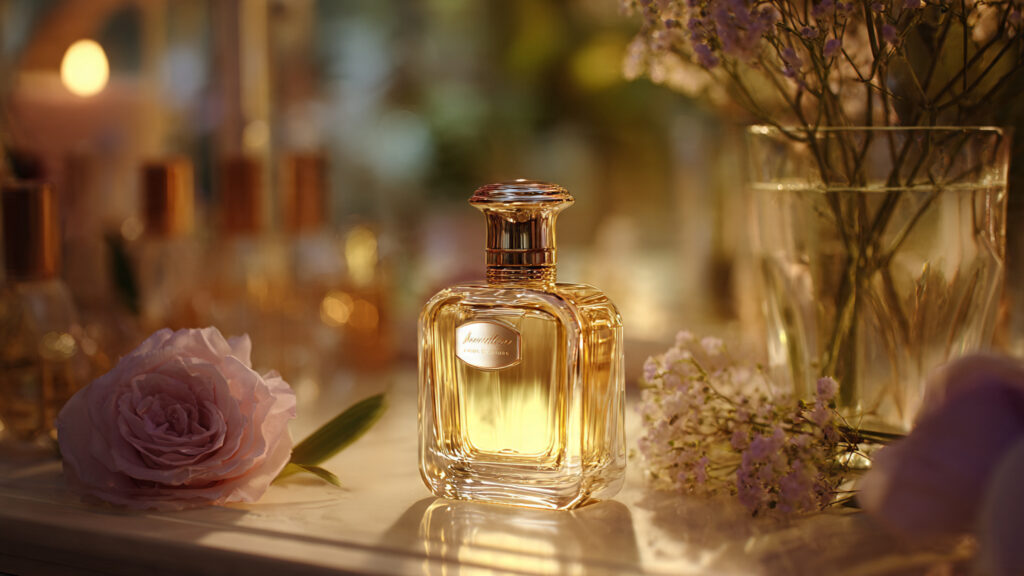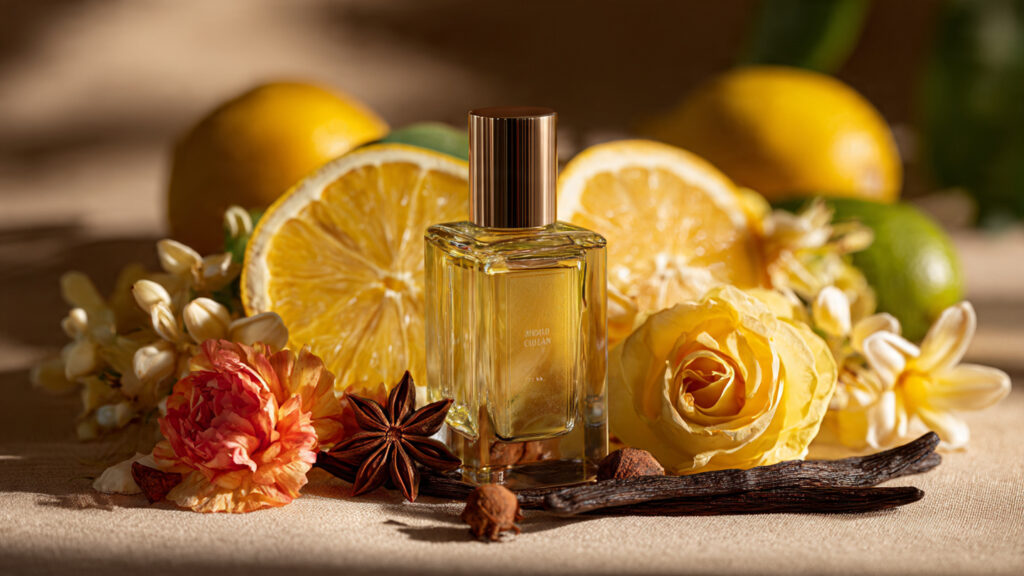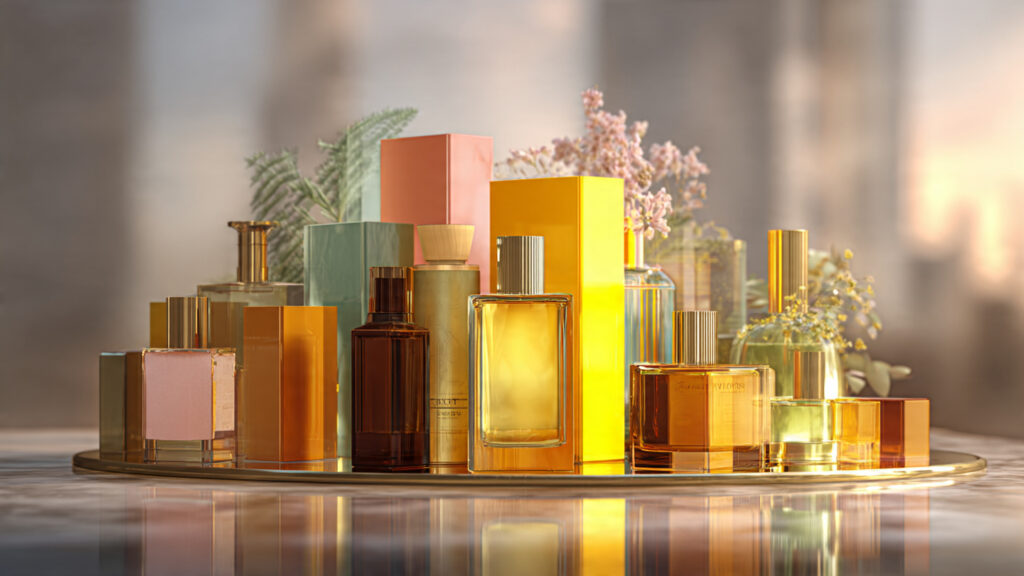Luxurious Perfumes are designed to express personality and have lasting impact. Luxury fragrances are basically made with premium ingredients that are taken from specific region and are carefully processed. Luxury perfumes are made by expert perfumers who balance notes very well. They last longer as compared to normal perfumes because good concentration of fragrance oils are used. Luxury perfumes contain deep layers of fragrance notes like top, middle and base. Luxury perfume bottles are also made with premium material and they are beautifully packaged. People choose luxury perfumes to show their dominating personality, their way of style, or on special occasion because of its last longing impression.
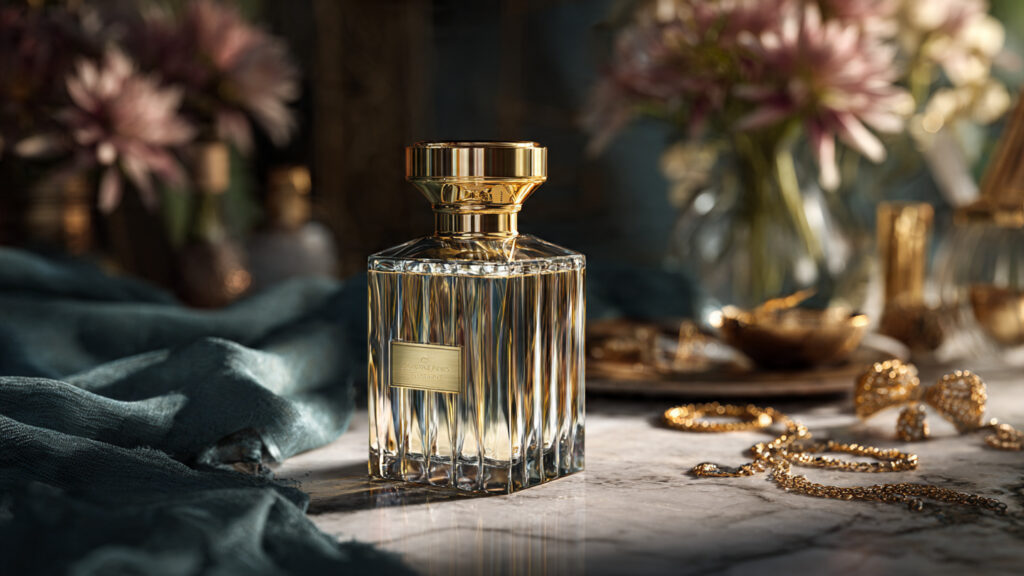
Art and Science behind luxury perfumes
There is a great hard work behind luxury perfumes. It is an art of artist who handles the notes perfectly. They are made with memories, a whole perfume can even memorize you of a desert this is because of balance of notes by expert.
Art in luxury perfumes
Expert of perfume industry show their art and they get inspiration from memories, places and even music. They make such a luxury fragrance that can memorize you of desert, garden and midnight forest walk.
Science in luxury perfumes
Science in luxury perfumes is balance of notes, stability and longevity. Each note must not overlap other note. There must be balance otherwise creativity fails here.
Premium ingredients used in luxury perfumes
Premium ingredients are used in luxury perfumes that are rare and often taken from specific regions of the world. These ingredients are very important for luxury perfumes otherwise perfumes without premium ingredients are not luxury. Some examples of rare premium ingredients are Bulgarian rose, Indian sandalwood, oud, and amber, etc. A small amount of fragrant oil require a lot of flowers that are collected by hand it must require lot of time. Luxury brands make significant investments to procure the best products from throughout the world. The scents richness and depth are guaranteed by the ingredients purity.
Oud, Ambergris and exotic woods
Oud is a liquid gold, it is very rare element. It is known for its depth in luxury fragrances.
Ambergris is also very rare element. It is known for its warmth and complexity.
Exotic woods is also very rare element. It is known for its richness and longevity.
High quality synthetic notes and their role
In luxury fragrances high quality synthetic notes are used. It will improve performance, sustainability and longevity.
Expert role in luxury perfumes creation
There is a great role of expert in luxury perfumes creation. They know the time, refinement process and notes blend, etc.
Role of master perfumer
Master perfumer are trained from many years, it take decades to become master perfumer. They are trained enough to understand fragrance molecules and turn raw ingredients into beautiful fragrances.
Time, aging and refinement process
It takes time after the creation of luxury perfumes that their notes blend well. Expert perfumers are aware of the time very well.
The Background of Luxury perfumes
Perfumes Historical Origins
Perfume has a long history that dates back to ancient times. Among the earliest individuals to use scents were the ancient Egyptians. For prayers and even for medicinal purposes they used fragrant oils chemicals and flowers. Perfume was valued at that time. Later on perfume production advanced in ancient Mesopotamia and Persia where perfumes were used in royal ceremonies. Perfumes were understand as power and prestige, it was mostly worn by rich in courts.
Evolution of modern luxury perfumes houses
Perfumes got evolution day by day with the innovation of modern technology they became more modern. Later on tradition and innovation was blended and resulting into luxury perfumes . This seems easy but took years of effort.
Luxury Perfumes Stand Apart From Mass Market Scents
Luxury perfumes stand apart from mass market because of premium ingredients that are very challenging to get and their longevity as i have already wrote. They are produced in very limited amount that makes them stand apart. As you know ingredients that are used in luxury perfumes are very rare and require in large amount to produce small amount of fragrance oil.
Famous Luxury Perfume Brands
There are numerous well known globally recognized brands in the world of luxury perfumes. Those brands include Chanel, Dior, Gucci, Tom, Ford and Creed. Because of their longevity and high quality these brands are trusted. Every brand has a distinct aroma and style. While some people favor strong modern scents others concentrate on timeless ones. To maintain their status luxury brands often produce limited editions. Owning perfumes from these brands makes people feel proud. Their names are associated with success and grace. These companies have produced memorable perfumes that millions of people adore over the years. Their worldwide demand shows the powerful effect of luxury fragrances.
The Emotional Impact of Luxury Fragrances
Fragrances can evoke human emotions and memory. The limbic system of the brain which controls emotions and memory is closely related to the olfactory system. This explains why a perfumes scent can immediately bring back memories of a loved one or a memorable period of your life. The richness and depth of luxury perfumes heighten this emotional experience. They are often made to arouse strong emotions such as passion, confidence, nostalgia or even mystery in addition to having a pleasing scent. Wearing a luxury perfumes shows your unique personality and that is very attractive for many people.
Process of Application and Storage of Luxury perfumes
The process of application and storage really matters for perfume. If you properly apply them it can increase their performance. If you properly store them it can save them for years. Here we will learn how to apply and store them.
Best application techniques for good results
First of all, application areas matter, such as applying on the neck, wrist, behind the ear, and near the elbow.
Do not Rub after applying the perfumes areas because rubbing can break the perfumes molecules.
Apply on moisturized skin perfumes last longer on hydrated skin. After taking shower using the perfumes can save it for long time.
Way of storage of luxury perfumes
Keep away from light because light breakdown the perfume molecules. So it is better keep in original box.
Avoid heat and humidity some people store perfumes in bathroom that is the worst place. Heat and humidity spoils the scent.
Store in a cool, dry place you can keep in a cabinet for better performance.
Keep the perfume tightly closed because exposure to oxygen, perfumes can loose its freshness.
Common misconception about luxury perfumes
Luxury perfumes are only for special occasion they can not be used every day. But in actual luxury perfumes can be wear anytime.
Luxury perfumes have higher prices means they have stronger smell this is a myth that many people believe. In actual they have very beautiful perfumes.
FAQs
1. Do luxury perfumes last longer than regular perfumes?
Many luxury perfumes offer better longevity and projection because of higher concentrations (EDP, parfum) and richer ingredients. However, performance also depends on skin chemistry and fragrance composition.
2. How should I choose a luxury perfume?
Consider your preferred scent family (floral, woody, oriental, fresh), the occasion, season, and your personal style. Testing on skin before buying is highly recommended.
3. How can I tell if a luxury perfume is authentic?
Buy from authorized retailers, check packaging quality, batch codes, and bottle details. Authentic luxury perfumes have consistent branding, high-quality materials, and clear labeling.
4. Are luxury perfumes suitable for all seasons?
Yes, but certain scent profiles suit specific seasons. Fresh and citrus scents are ideal for summer, florals for spring, warm spicy or woody notes for fall, and deep oriental or gourmand scents for winter.
5. What are common notes in luxury perfumes?
Common notes include rose, jasmine, oud, amber, sandalwood, vanilla, iris, bergamot, patchouli, and musk. Luxury perfumes often combine these in complex, layered compositions.
Conclusion
In this article i have explained everything about luxury perfumes what is the art and science behind luxury perfumes. Premium ingredients that are used in luxury perfumes, their way of selection and collection. I have explained the role of experts in luxury perfume creation. I have explained brief history of luxury perfumes about the origin and evolution day by day. I have explained about how luxury perfumes stand apart from mass market scents. I have explained how to properly apply and store luxury perfumes. I have also talked about common misconception about luxury perfumes.
